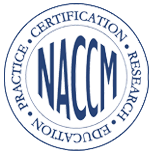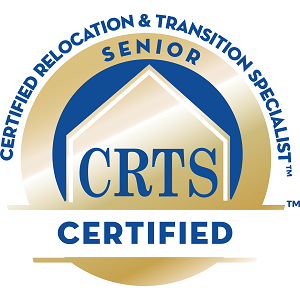Parkinson’s Disease in Seniors: Importance of Medication Management and Compliance
After a Parkinson’s diagnosis, managing your loved one’s symptoms will be a top priority. Due to the nature of this disease, medication is currently the best way to manage the symptoms and must be taken exactly as a doctor prescribes.
Currently, several standard drug treatment options are available to help manage these symptoms and the progression of Parkinson’s.
Combined with complementary therapies, medication management can help seniors live healthier, fuller lives with Parkinson’s disease.
As their caregiver, finding ways to help your parent or grandparent maintain a good quality of life with their condition is crucial. With the help of professional medication management and senior care services, Parkinson’s disease will be easier to manage in the long run.
What Causes Parkinson’s Disease?
Parkinson’s disease is caused by the death and/or impairment of nerve cells in the area of the brain that is responsible for controlling movement (basal ganglia), as these cells produce a necessary brain chemical known as dopamine. Due to impairment or death, these cells produce little to no dopamine, resulting in the symptoms impacting movement, which is associated with the disease.
Parkinson’s also leads to a loss of the nerve endings responsible for sending chemical messages through the nervous system – which controls bodily functions such as heart rate and blood pressure. The loss of these nerve endings is believed to play some role in the non-movement-related Parkinson’s symptoms such as fatigue and irregular blood pressure.
Unfortunately, the disease still has many unknowns, including what causes the impairment/death of these specific nerve cells. But with scientific advancements, studies have shown that the disease can be linked to the combination of both genetic and environmental factors.
The main symptoms of Parkinson’s disease include tremors in the hands, arms, legs, head, and jaw, muscle stiffness (prolonged muscle contraction), slow movements, and impairments in balance and coordination (which can lead to falls). Additional symptoms associated with the disease may include depression, difficulties in swallowing, speaking, and chewing, urinary problems and/or constipation, and skin problems. The rate at which Parkinson’s symptoms develop and progress will vary on an individual basis.
All people diagnosed with Parkinson’s will encounter different symptoms, which is where medication management and medication compliance come into play.
What is Medication Management and Compliance?
Medication management helps patients get the most out of their prescribed treatments. In senior wellness, prescription drugs often play a significant role in health stability. So, ensuring seniors stay consistent with their medications is vital in managing Parkinson’s disease.
It is important to always take medications as prescribed by a doctor, but especially so for seniors battling the symptoms of Parkinson’s disease. But medication management is more than just taking medications as they are intended. Medication management is the entire support system (doctors, loved ones, caregivers, etc.) working together to ensure that all medication needs and requirements are met (i.e., staying hydrated, picking up refills, booking doctors’ appointments, etc.).
With Parkinson’s medication, some seniors may not realize the criticalness of timing and consistency, especially if they cannot remember to take the correct dosage at the proper times due to memory decline caused by general aging, Parkinson’s disease, or as a side effect of the medications. This is where compliance comes into play, as medication compliance includes taking the proper medication(s) at the right time, in the exact method prescribed by the doctor.
Medication management services are a valuable resource for effectively managing Parkinson’s medication treatment plans in the safest way possible.
Why Parkinson’s Medication Management and Compliance is Critical
Parkinson’s disease is, for the time being, incurable – but it can be managed through medication. As a progressive disease, Parkinson’s symptoms will only worsen with time, so to lessen the severity of the symptoms and improve the quality of life for those affected, proper medication management and compliance is essential.
For seniors, the long-term effects of living with Parkinson’s may include dementia and severe cognitive impairment.
Families that want to help their loved one maintain the highest quality of life must ensure that their relative takes their medication exactly as prescribed.
Although no drugs have been proven to slow the progression of Parkinson’s disease, they can make symptoms much less disruptive. For this reason, certain Parkinson’s medications are used to moderate the severity of Parkinson’s symptoms.
Medication management for Parkinson’s can help patients find the right prescription drugs that best meet their needs and symptoms. Some medications will cause side effects that outweigh their benefits. In these cases, a medication manager can help families advocate for a patient’s needs and get a better-suited prescription from the doctor.
How to Master Parkinson’s Medication Management and Compliance
You can help your loved one master Parkinson’s medication management and compliance in several ways. As with every facet of senior care, it takes time to discover a plan that works well for each individual.
These tips will help you develop the right strategy for your loved one.
- Use Electronic Caregiver’s services to set reminders for your loved one to take their medication at the required times and to be notified if they do not respond to their medication alerts.
- Set alarms to help them take medications at the same times each day as needed.
- Make sure they drink at least 6 to 10 cups of water daily.
- Include physical activity in their daily routine, which will help the body better absorb the medication.
- Make sure they understand that they should never stop taking the medication without first talking to their doctor – even if they have side effects.
- Pay attention to drug expiration dates, and set reminders for prescription refills.
- Hire a care manager to help your loved one comply with their medication guidelines.
Reflections Management and Care provides expert medication management for seniors living in Baldwinsville, Syracuse, and Onondaga County, NY. Our professional staff will help you and your loved one to create a Parkinson’s medication management plan that works for you.
Please contact us today to learn more about our senior medication management services.













